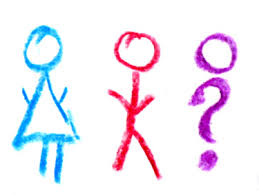I really enjoy Kate Bornstein so I decided to re-read one of the chapters from her book for my last reading response. My understanding of the text, along with all of our recent reading assignments has been a lot better. Since using the same words frequently in class I no longer have to second think to what certain words mean. Sentences flow a lot easier for me and make more sense.
I re-read Kate Bornstein’s chapter 3: Let X=X. Since reading this chapter the first time, the phrase that gender is who you are and who you can be means a lot more to me. This chapter was easy to read as it focused on judging people when you see them right away. When you pass someone walking by, you instantly point out their race and usually their gender. In the past it has really bugged me when I couldn’t quite figure out if someone was a female or male. I have now learned that they might not be either! I’ve also learned that it really doesn’t matter what their gender is and if I’m just passing by them it isn’t my business. I see this realization making a connection with our later discussions in the semester. This is really important because I’ve learned proper etiquette on how to treat people. Not that I was doing it before, but no one likes being stared at. I’ve just let things go instead of wondering about them now.
My understanding of the reading assignment definitely reflects my new understanding of LGBTQ issues and concepts. Before it was hard for me to understand that gender isn’t just a binary thing. There is more to gender than just female and male. Gender is a spectrum. It isn’t just the body parts you were born with but it is how you relate to yourself. Since binary means only two, gender can’t be binary. Re-reading the part about the robot in Wall-E made a lot more sense to me than the first time around too. When referring to the movie I just figured that there was a boy robot and a girl robot. It’s much easier for me to actually comprehend that these robots might not even have genders! I also don’t just jump to conclusions about there being a boy and a girl in every relationship I see in the media.
This reading does relate to my Advocacy Project because my project is focused on the equality of all humans. This reading makes a point that figuring out someone’s religion or social status is nice when you are getting to know someone. These are really just characteristics though, they don’t actually make up that human being. It isn’t important because everyone is human.


